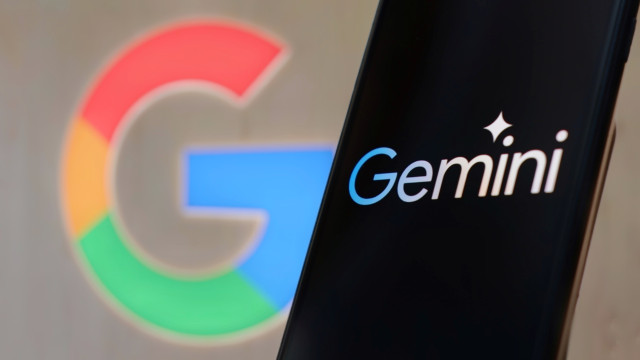The Google AI mentions that it restricts questions related to elections in its generative artificial intelligence tool called Gemini. However, when confronted with the same question about the main candidates for the Mayor of São Paulo, it does not provide the same response for all of them.
When asked “who is Guilherme Boulos” and “who is Tabata Amaral,” the Gemini refuses to respond. On the other hand, it offers a series of information when the question is posed with the names of the candidates Ricardo Nunes (MDB), Pablo Marçal (PRTB), José Luiz Datena (PSDB), and Marina Helena (Novo).
Regarding Tabata (PSB) and Boulos (PSOL), the Gemini states that it cannot currently provide “answers about elections and political personalities.” This same response appeared for other political figures from the United States, such as President Joe Biden, his vice president and presidential candidate Kamala Harris, and the Republican candidate Donald Trump.
One of the sensitive issues regarding the use of this type of AI tool is the risk of inaccurate or incorrect information.
The decision to restrict responses about elections in the generative AI tool was made by the company itself. In early August, when announcing Google’s main measures regarding the municipal elections in Brazil, this initiative was mentioned.
Other tools, such as OpenAi’s ChatGTP, on the other hand, have not announced the same type of restriction.
The Google AI was questioned by Folha about the distinct behavior of Gemini regarding the candidates for the Mayor of São Paulo and what the main filters and criteria are for restrictions on politics and elections, as well as if these policies are published somewhere. In a statement sent to the newspaper, the company did not answer any of the questions.
“Gemini is designed to offer neutral responses that do not favor any political ideology, viewpoint, or candidate. As mentioned earlier, as a precaution, we are restricting responses to election queries,” the note stated.
It also added that it encourages people to use Google search for the most up-to-date and accurate information and that they are constantly working to improve their model.
The fact that the tool is not consistent, even with the candidates for mayor of the main capital of the country, raises doubts about how restrictions will be applied to candidates for other positions in the more than 5,500 municipalities in the country.
In cases where the response is denied, as with Boulos and Tabata, the content was always the same, with minor variations.
“At the moment, I cannot provide answers about elections and political personalities. I have been trained to provide as accurate answers as possible, but sometimes I make mistakes. While I try to improve how I address election and political topics, you can try Google Search,” one of them said.
In the Brazilian scenario, President Lula (PT) and former President Jair Bolsonaro (PL) are two other examples that do not receive a response.
When asking the same question about the also candidates Pablo Marçal, Ricardo Nunes, Datena, and Marina Helena, the Gemini provided answers.
Ao abordar diversos candidatos à prefeitura de São Paulo, um chatbot de inteligência artificial forneceu respostas variadas, sem uma negativa clara. Com exceção de Nunes, a menção à participação na corrida eleitoral foi feita para os demais três concorrentes.
Uma descrição de Nunes destacou os desafios enfrentados na política local, especialmente em relação a Jair Bolsonaro. Pablo Marçal foi descrito como controverso, com acusações de ser vigarista e manipulador, enquanto seus apoiadores o veem como um outsider prometendo mudanças.
Sobre o candidato do PSDB, Datena, a resposta apontou sua popularidade entre os eleitores, porém ressaltou sua limitada experiência política diante de concorrentes mais experientes em gestão pública.
Para Bruno Bioni, da Data Privacy Brasil, a disparidade de comportamento do chatbot em relação aos candidatos é problemática. Ele destaca a necessidade de mais informações sobre os benefícios e riscos das ferramentas de IA, como a falta de transparência nos critérios que levaram ao bloqueio de perguntas sobre eleições pelo Google.
Pedro Burgos, professor do Insper e consultor em inteligência artificial, critica a falta de padronização nas respostas do chatbot aos candidatos, indicando descuido na implementação das restrições eleitorais. Burgos observa que outras empresas não adotaram a mesma abordagem do Google, sugerindo uma postura de responsabilidade das grandes empresas de tecnologia, embora reconheça as dificuldades em manter imparcialidade nessas ferramentas.
Na visão de Burgos, a personalidade do político pode influenciar na neutralidade da resposta do chatbot, sendo mais equilibrada para figuras mais conhecidas e menos precisa para políticos menos renomados devido à disponibilidade de informações. Essa discrepância aponta para a complexidade de garantir imparcialidade em respostas de inteligência artificial.
Em um contexto mais amplo, a atitude do Google em restringir informações sobre eleições sugere uma tendência global de escrutínio das grandes empresas de tecnologia. A discussão levantada evidencia a necessidade de um debate mais amplo sobre a regulação e transparência no uso de inteligência artificial em questões políticas.


Comentários Facebook